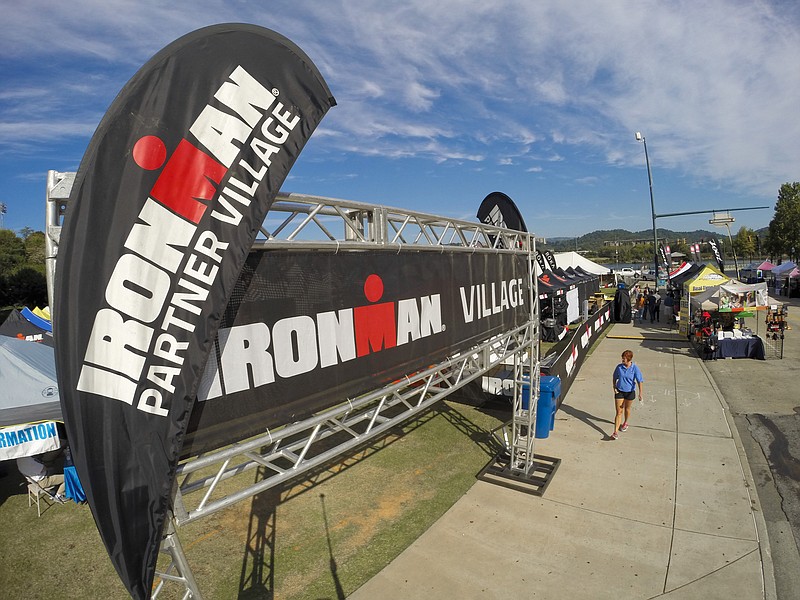Read more
'Finish what we started:' Father will race in Ironman to honor son after his sudden deathIronman 2015: Tips for navigating Sunday's race Chattanooga area wrestling coaches out to take down Ironman Ironman expected to give Chattanooga $11 million economic boost Medical team will keep close watch over Ironman in Chattanooga Are you an Ironman wannabe? Experts say you need to start slowly
In today's Ironman competition, some 2,300-2,500 participants will push their bodies to the absolute limits, swimming 2.4 miles in the Tennessee River, bicycling two loops in North Georgia for a total of 116 miles and then running a 26.2-mile marathon. They'll be trying to keep in constant motion for 16 to 18 hours.
It's a punishing test of endurance, and some athletes push too far. Those are the folks that Erlanger's Jerry McDonald and 150 hospital staffers and volunteers will be looking for.
McDonald is coordinating a medical emergency team that will be stretched from Riverfront Parkway, where the swimming portion of the contest begins, all the way down Chattanooga Valley to the far end of the bicycling route, some 30 miles away. Ironman organizers contracted with Erlanger to provide medical services for the event.
If last year is any indication, the team can expect about 300 athletes to drop out of the event and head for the medical tent for treatment.
"Most of it is heat-related illnesses, followed by dehydration," McDonald said. "We'll see some asthma patients, cuts, bruises, blisters and scrapes."
And possibly dog bites.
"Dogs are a real hazard," said Adam Royer, a four-time Ironman participant. He's also administrator of surgical services at Erlanger who'll be working in the medical tent this year.
It's the swimming portion of the event, however, that worries the medical staff the most.
"People can get super cold," Royer said. "Or, if they are wearing a wetsuit, and the water is warm, people can overheat."
Kayakers, paddleboarders and a physician will be on the river and the fire department will have boats - there will be lots of eyes on the swimmers in case one of them passes out and slips underwater.
A dozen ambulances from Hamilton and Walker counties will be stationed along the route for the cycling and running portions of the event. Erlanger will have one of its emergency helicopters stationed at the far end of the cycling route in Chattanooga Valley. Another will be ready to be airborne downtown.
For the cyclists, the condition of the road is a major concern.
"You have potholes, cracks in the road," Royer said. Volunteers go over the route in advance and mark any hazards they see with orange paint. Even on good stretches of pavement, accidents can happen. During the race, clumps of cyclists sometimes bump into each other. If one falls, others following close behind often crash, as well.
Medical personnel focus on the transition tents, where the athletes change from swimsuits into biking gear or a running outfit. McDonald will have doctors watching closely to do a quick evaluation and if they believe an athlete is having medical problems, they have the authority to pull that person off of the course.
"People push themselves too far," Royer said.
Even those who cross the finish line of the grueling race may need attention. Medical crews stationed at the finish line evaluate runners and recommend whether they should seek assistance.
Contact Steve Johnson at sjohnson@timesfreepress.com or 423-757-6673 or on Twitter@stevejohnsonTFP.
